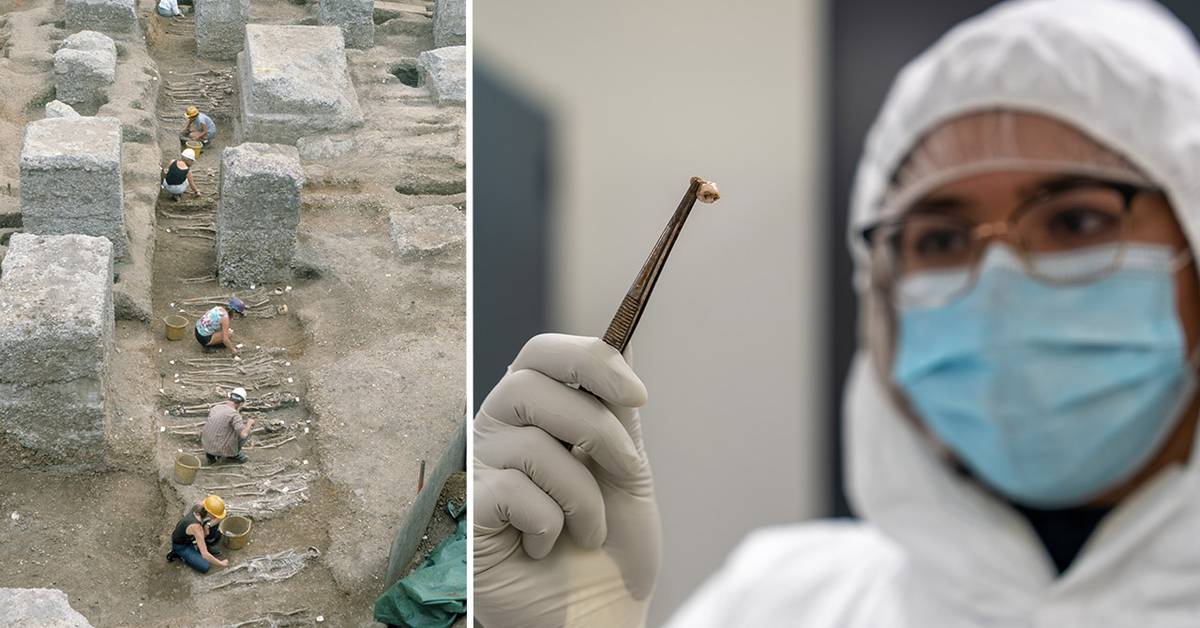In the middle of the 14th century, the plague came to Europe and killed almost half of the population.
Whoever was infected knew that they most certainly had a quick and painful death ahead of them.
Many died, but some of those infected actually survived the infection caused by the bacterium Yersinia pestis.
So they survived the plague
Now a group of evolutionary geneticists has investigated whether there were any genetic predispositions that contributed to an increased chance of survival.
The researchers examined individuals from a plague cemetery in London as well as from five different cemeteries in Denmark.
The genome of individuals who died before the arrival of the plague was compared with the genome of those who died during the pandemic and those who died afterwards.
In the latter group, the survivors and their descendants, the evolutionary geneticists found a greater proportion of a certain type of gene variant compared to those who died before and during the plague.
Today we know that these gene variants are linked to the immune system.
Infected cells with Yersinia pestis
In a high-security lab at the Pasteur Institute in Paris, the researchers infected human cells with Yersinia pestis and found that the cells that carried the same gene variants as the 14th-century survivors had a stronger defense against the bacterium, compared to the cells that did not have the gene variants.
- The genes produce a protein that is like scissors.
The scissors cut apart the plague bacteria, rendering them harmless.
And the more of these gene variants you have, the more likely you are to survive, says Hendrik Poinar, who is an evolutionary geneticist at McMaster University in Canada.
He is a co-author on the study published in Nature this week.
Got immunity
Those who lacked these protective genes therefore had less chance of surviving the plague.
Since it was such a large proportion of the population that died in the repeated plague outbreaks in the 14th century, the protective heredity increased among the inhabitants.
It may also explain why fewer people died when the plague returned in the 17th and 18th centuries.
Increases the risk of getting rheumatoid arthritis
But protection against the plague came at a cost.
The genes that protect against the plague increase the risk of suffering from autoimmune diseases such as rheumatoid arthritis, MS, and Crohn's disease.
- We have long assumed that there is a connection between the need for good protection against infection and the risk of developing autoimmune diseases, but this is the first time that it can be clearly shown that specific genetic predispositions that are linked to an increased risk of autoimmune disease actually increased in population during the plague, says Fredrik Piehl, who is professor of neurology at Karolinska Institutet.
No bad genetics
Fredrik Piehl is also a doctor and meets people affected by the autoimmune, neurological disease MS.
- I usually tell my patients who wonder if they carry "bad" genetic predispositions that it may be that they have too few good genes that have caused their ancestors to survive diseases such as the Spanish flu and the Black Death, he says.

